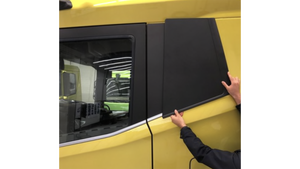December 31, 2002
Blown film extrusion is mostly a high-volume, low-margin business. Fortunes rise or fall on margins of as little as a fraction of a cent per pound of material processed. With price competition so fierce, it’s little wonder that film products from low-cost producers offshore continue to win greater market share in North America, Western Europe, and Japan.
The growth of offshore film and bags has been ongoing for years, of course, marked at times by charges — and findings — of unfair trade practices. Nevertheless, foreign producers continue to make sizeable inroads, and there is no sign of a letup. In North America, for example, Asian products alone reportedly account for 16% of the film market and 26% of the bag market. Many processors believe these figures will continue to rise. And Asia isn’t the only source of low-cost products: North America, Western Europe, and Japan are targeted by producers in the Middle East and South America, as well.
How can processors increase market share and profitability with competition like this? The very largest blown film producers rely on economies of scale in production and purchasing to stay profitable in commodity markets. For others, the answer is increasingly specialization, high-value products, and niche markets.
Recent conversations with film processors bear this out. The experiences of one, in particular, demonstrate that with a strategy focused on performance and value, blown film processing and bag-making can be highly profitable and offer solid growth prospects in high-cost manufacturing regions.
The processor, PCL Packaging Corp., a multi-plant business with headquarters in Barrie, on, Canada, had 2002 sales of around $120 million, a 20% gain from the previous year. PCL specializes in polyethylene bags, though it has capabilities in nylon packaging via a recent acquisition. With its primary markets largely in the commodity end, PCL has felt as keenly as any film processor the squeeze on margins from offshore producers. The company is altering its strategy to reflect this. It now looks toward specialization and product differentiation as routes to growth and greater profitability. As such, it is an example of where blown film processing in high-cost production areas may be headed for all but the largest companies.
“This environment will make us a lot better,” said Bill Swinimer, chairman and ceo. “It will drive us to a niche strategy versus slugging it out with commodities.”
Capabilities will include multilayer
The product focus at PCL has been T-shirt, refuse, and merchandise bags. The company will continue in this business, said Swinimer, but will expand in other areas, notably film production. Here, the emphasis will be on specialty products and on upgrading capabilities from monolayer to multilayer films, including barrier structures.
“We will stay with our core customers,” Swinimer said, in an interview at Pack Expo in Chicago last November, “but growth will be in higher-value products.”
Some of these products include bakery films, heavy-duty shipping sacks, shrink films, specialty retail bags, and multilayer and possibly barrier films. PCL is targeting specific applications within these markets, but Swinimer declined to identify them. The margins they produce, however, will be “vastly improved,” he said.
Specialty bags can, in fact, be sold for as much as 50 to 60¢ over resin price, said Phil Murphree, president of PCL’s U.S. operations, who is based in North Dighton, ma. Import competition in commodity bags, by contrast, has driven grocery sack prices down to as low as 15¢ over resin price on Internet-based reverse auctions, he reported.
Murphree, formerly ceo of film equipment maker Battenfeld Gloucester Engineering, in Gloucester, ma, joined PCL late last summer. At about the same time, PCL named Tim French president of its Canadian Div. He had been vp. of operations.
Internet auctions erode margins
Reverse auctions are another reason why the push for specialty products and the higher margins they bring is critical. In these auctions, oem customers announce their need for products and seek bids for supply. The oems set a “spike price,” a price ceiling that they expect bidders to come in below. The lowest bid usually wins.
Or does it? Murphree said that in many cases, oems take the low bid and use it to extract price concessions from current suppliers. In other cases, bidders have no idea if they are bidding against a domestic rival or an offshore producer — or if they are even bidding against any suppliers at all. The reverse auction puts film processors at a disadvantage, Murphree contended, since it encourages them to make snap decisions on pricing and supply with little, if any, competitive information. For this reason, Swinimer said, PCL no longer participates in reverse auctions unless “there is a good reason to,” such as an existing customer’s request.
Concern about reverse auctions has reached a point where the Film and Bag Federation of the Society of the Plastics Industry is looking into drafting a set of guidelines for processor participation.
PCL’s current product mix is 35% grocery bags, 35% retail bags, 15% trash bags, and 15% film. Swinimer said that in three years, he expects film to account for 25% of business. Grocery bag sales will be slightly reduced, and sales of other bags — including specialty bags — will increase, though he didn’t specify by how much in either case.
Acquisitions also help drive growth
New products aren’t the company’s only strategy for growth, however. PCL is also pursuing acquisitions. “Our aim is to be at $250 million to $300 million [in annual sales] in three years,” Swinimer said, growth that will be achieved with the help of acquisitions.
The company, which has five facilities in the U.S. and three in Canada, has acquired various plants and assets since early 2001. In the U.S., these include: Gem Polymer Corp., a Delano, pa, producer of nylon food packaging; Uniplast Films’ Jacksonville, fl, plant; equipment and assets of BPI Packaging Technologies in North Dighton, ma; and most recently, Coastal Plastics Corp., also in Jacksonville. In Canada, the company purchased manufacturing equipment from the Richmond, bc, plant of Sonoco Flexible Packaging, for installation in Oakville, on, and Saint John, nb.
Swinimer said that despite its drive for acquisitions, the company is consolidating operations. It had plans to divest the Delano, pa, facility by the end of last year, and to consolidate the two Jacksonville plants into one facility, that of Coastal Plastics Corp., by April of this year. The Canadian operation will not change dramatically, he said.
With the acquisition of plants and equipment, PCL has adequate capacity to expand its product line. In North Dighton, especially, Swinimer said, there is not only sufficient capacity for expansion, but specialty lines that produce very flat, ultra-thin-gage, clear hdpe film, as well as heavy-duty shipping sacks.
PCL has some 80 million lb of capacity in Canada, and 80 million lb in the U.S. Swinimer did not disclose capacity-utilization figures, but said the company has the ability to increase sales dollars by 50% without major capital investment.
You May Also Like


